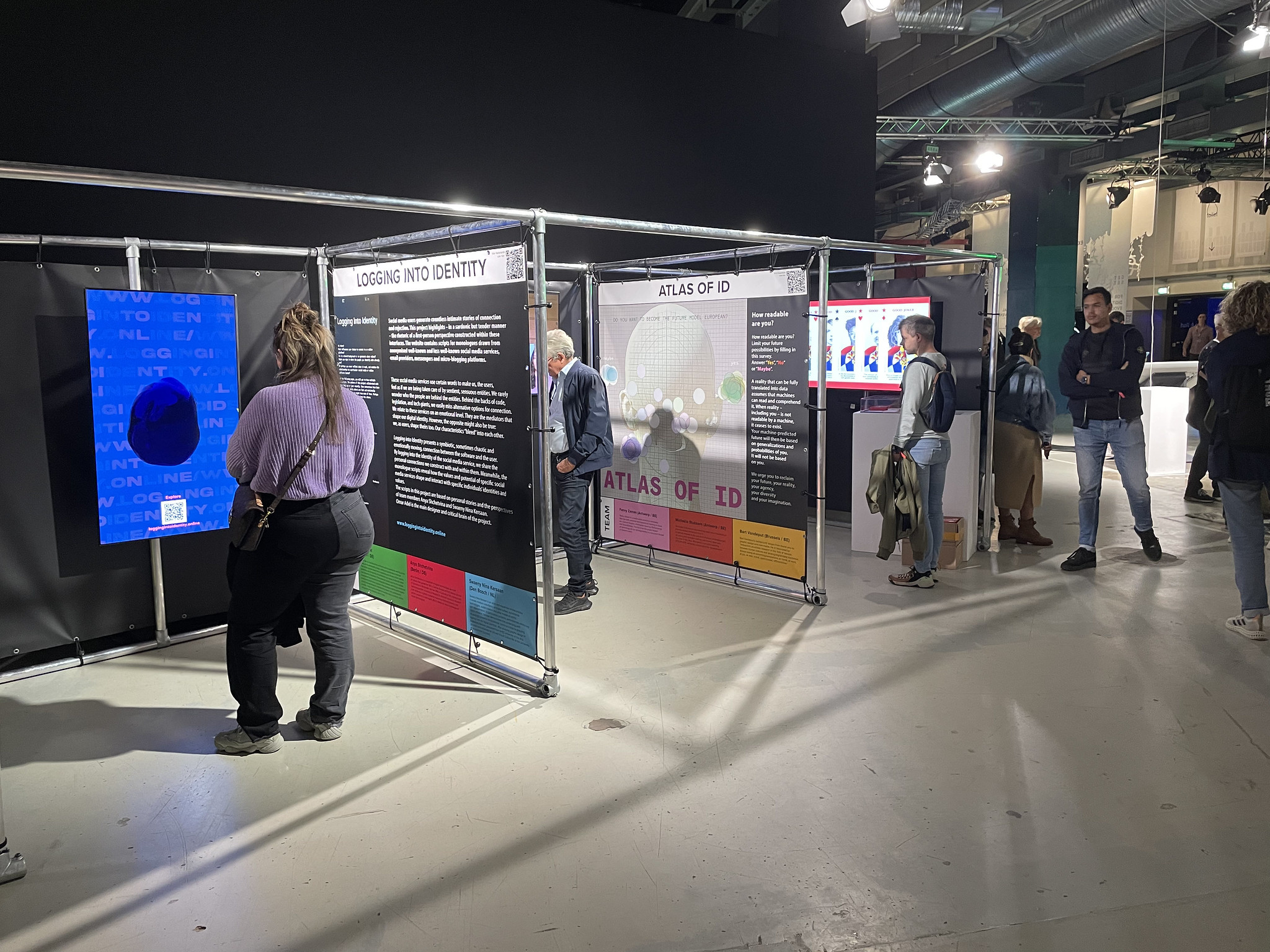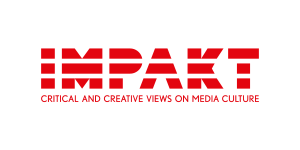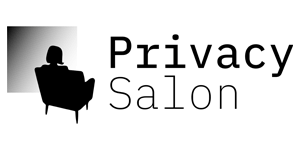CODE aims to make the public in general and politicians and policymakers in particular aware of the digital challenges of our time. We want big tech companies to be regulated, and our governments to curb their power and protect our digital rights. How can we make politicians understand the urgency to act? What can we as concerned citizens, researchers and artists do to support this process? How can we help develop a code of ethics for our digital future? How can we change Big Tech into Fair Tech?
CODE was initiated in 2021 as a response to growing concerns that we are losing agency over the digital tools and platforms we use on a daily basis. We hope to be able to influence public policy on a national and international level, by creating awareness for issues at hand, and by defining ways in which we can improve laws and legislation that will protect us as digital citizens and consumers. We want to inspire and facilitate cross-disciplinary collaborations, which hopefully have the potential to catalyze system change.
CODE brings together artists, non-artists, politicians, policy makers and researchers living in Germany, Belgium and the Netherlands. The participants get the opportunity to work closely together in groups in a co-creation process of six months. Every year we present the results at international festivals and events.
At this year’s Ars Electronica festival, the work of the participants in the 2023 edition of CODE will be presented.
-
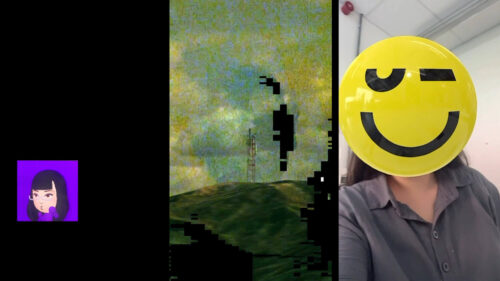
Ansible
Yedam Ann (KR), Zeng Sixin (CN), Alexander Walmsley (UK)
Ansible takes the roll-out of the 5G infrastructure across the planet as a starting point to explore the disconnect between the speed of telecommunications infrastructure and the human act of communication itself.
-
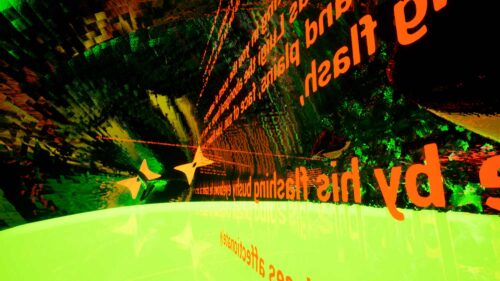
APEIRON
Robert B. Lisek (PL/NL), Oleksandr Sirous (UA)
APEIRON creates a transparent application that analyses the ways in which we work with information. By using an independent application that is transparent, self-regulating and powered by AI technologies, individuals can regain control of their digital identities and reduce the influence of corporations.
-
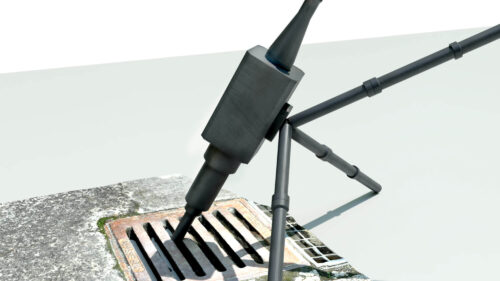
BUG
Lea Luka Sikau (DE), Denisa Půbalová (NL), Antje Jacobs (BE)
Asking who or what determines our perception of an animal, BUG investigates how we look at insects. Biosurveillance has become more popular over the past decade(s) and bug fights have turned into a source of entertainment.
-
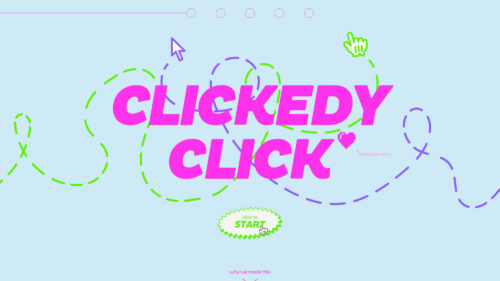
clickedy.click
Leon van Oldenborgh (NL), Robin van de Griend (NL), Lukas Völp (DE), Hennie Bulstra (NL)
The design of online interfaces influences the way identities and perspectives on the world are formed. clickedy.click is a provocative social experiment that addresses the current issue of in-transparent, non-consensual online user-tracking used to inform the design of these interfaces.
-
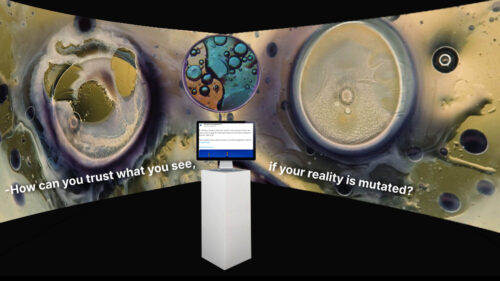
Cybi0nt
Asli Dinc (TR), Deniz Kurt (TR)
This interactive art installation explores the alarming impact of post-truth on our contemporary society, and how this is accelerated by generative AI and deep fake technologies. Cybi0nt uses the symbolism of gene mutation to represent the morphing and distortion of truth, as simulated through a “fake news generator”.
-

My Virtual Mermaid
Lisa Marie Bador (FR/DE)
If the digital world is a sea of information, malicious software and computer viruses are mermaids: their magical songs turn horrible monsters into charming water creatures.
-
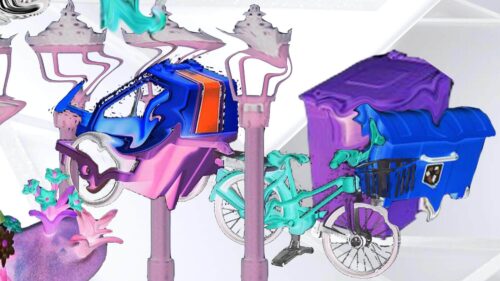
On the Exactitude of Maps
Felipe Schmidt Fonseca (BR), Rebekka Jochem (DE)
Digital maps representing the physical world are built and updated in real-time as people use digital devices to navigate public space. Even while wandering aimlessly, users generate data trails which are captured and fed back into a cybernetic leviathan.
-
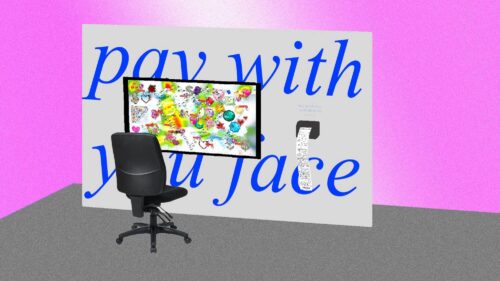
Pay with Your Gaze
Ana Spagnolo López (AR), Helena Roig (ES), Marion Lissarrague (FR), Vinciane Dahéron (FR)
Marketed as a “next generation” intuitive interface, the simple movement of our eyes has become just another commodified gesture to be exploited by surveillance capitalism.
-

Turning Tables
CODE – Reclaiming Digital Agency
It’s time to play a new game. In Turning Tables, underpaid factory workers trump Mark Zuckerberg, tech critics come to the rescue, and politicians are urged to step up and curb the power of Big Tech. Turning Tables is a new card game that turns Big Tech into Fair Tech.
-
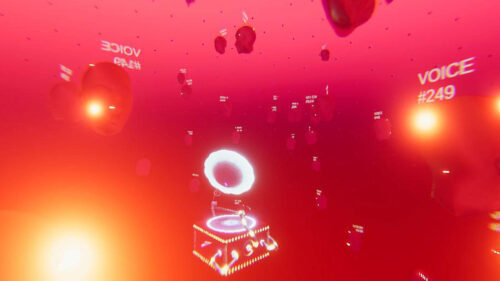
VOICES
Ahnjili ZhuParris (US), Mohsen Hazrati (IR), Phivos-Angelos Kollias (GR), Yu Zhang (CN)
VOICES, an interactive installation, invites participants to co-create a sound-art composition with their voice. Participants are asked to record a secret. In return, they can be visually guided through the processing, analysis and cloning of their voice recordings by various voice technologies (VT) algorithms.
About
IMPAKT is a media arts organization based in Utrecht and founded in 1988. We present critical and creative views on contemporary media culture and arts in an interdisciplinary context. Our aim is to identify urgent issues in our digital and transglobal culture, by focusing on the relationship between society, media, technology and arts. We examine issues around politics, science and popular culture from different angles.
Credits
CODE 2023 is the third edition of CODE, and it is organized by IMPAKT Centre for Media Culture together with Werktank (Leuven), Privacy Salon/Privacytopia (Brussels) and transmediale (Berlin). CODE 2023 is realized thanks to the kind support of the City of Utrecht, Creative Industries Fund NL, Fonds Soziokultur and Fonds Cultuurparticipatie. The exhibition at Ars Electronica 2023 is supported by the Creative Industries Fund NL.
